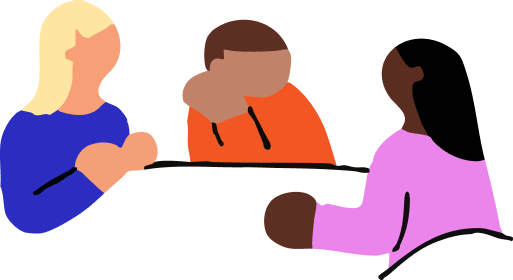
At Eleanor Health, we believe recovery isn’t one-size-fits all—and your treatment plan shouldn’t be either. For many people, prescribed medications can play a powerful role in managing cravings, easing withdrawal symptoms, and supporting long-term health and stability. But we understand that every person’s journey is unique. That’s why at Eleanor Health, prescriptions and treatment plans are never generic—they’re carefully tailored to meet your specific needs and goals.
During your first appointment, your medical provider will take the time to get to know you, understand your health history, and collaborate with you to create a personalized treatment plan that supports your path to long-term recovery.
Medication-Assisted Treatment (MAT) combines FDA-approved medications with therapy and peer support. It helps treat substance use disorders—especially opioid and alcohol addiction—by reducing symptoms, improving outcomes, and lowering the risk of relapse.
At Eleanor Health, we offer evidence-based medications prescribed to your unique needs and recovery goals in the following pillars.

Medications used to support recovery by reducing cravings, managing withdrawal, or discouraging alcohol use:
Medications used to reduce withdrawal symptoms, prevent relapse, and support long-term recovery:
Includes medications for nicotine/tobacco use, stimulant use, and withdrawal support.
Anxiety and PTSD
Depression & Anxiety (Antidepressants)
Mood Stabilizers & Bipolar Disorder
Antipsychotics

At Eleanor Health, we believe that recovery is about more than just treating symptoms—it’s about healing the whole person. Our whole-person care approach recognizes the deep connections between physical, mental, and emotional health, and how social factors like housing, employment, and access to support systems influence a person’s overall well-being. This patient-centered strategy not only supports individuals medically and psychologically, but also addresses the social determinants of health that often play a key role in long-term recovery outcomes.
We understand that addiction is a complex condition that often co-occurs with mental health challenges and chronic physical illnesses. In fact, over 80% of people with a substance use disorder (SUD) also face mental health conditions. Untreated physical or psychological issues can contribute to relapse, which is why we tailor our care to address all aspects of a person’s health.
Medication is just one part of recovery. At Eleanor Health, you’ll also have access to:
Medication-Assisted Treatment (MAT) combines prescription medications with therapy and peer support to treat substance use disorders. It can reduce cravings and withdrawal symptoms, improve treatment retention, and lower relapse risk when used as part of a broader care plan.
Medications are chosen based on your substance use history, medical and mental health needs, current medications, and recovery goals. A medical provider reviews risks and benefits, then adjusts the plan over time based on symptoms, side effects, and progress.
Common options include naltrexone, acamprosate, and disulfiram. Some care plans may also use topiramate or gabapentin when clinically appropriate to support cravings, withdrawal symptoms, or relapse prevention.
Naltrexone can reduce cravings and make drinking less rewarding for some people. It is often used alongside counseling and ongoing support to build sustainable behavior changes.
Common options include buprenorphine based medications and naloxone for overdose prevention. Treatment typically pairs medication support with counseling, peer support, and structured follow-up.
Buprenorphine is a medication that can reduce opioid cravings and withdrawal symptoms by partially activating opioid receptors in a controlled way. It supports stability so you can focus on recovery skills, routines, and long-term goals.
Suboxone is a combination of buprenorphine and naloxone that is commonly used to treat opioid use disorder. It may be prescribed when clinically appropriate and is typically paired with counseling and ongoing monitoring.
Naloxone is an emergency medication that can reverse an opioid overdose. It is often provided as a safety measure for people at risk of overdose and for loved ones who may need to respond in an emergency.
Yes. Many people in recovery also experience conditions like anxiety, depression, or PTSD. Addressing mental health with appropriate medications and therapy can reduce symptoms that contribute to relapse risk and improve overall functioning.
Options may include hydroxyzine or buspirone for anxiety and prazosin for certain PTSD related symptoms such as nightmares. The right choice depends on symptom profile, medical history, and medication interactions.
Call today to speak to one of our recovery specialists. We are ready to listen, learn and offer support without judgment.